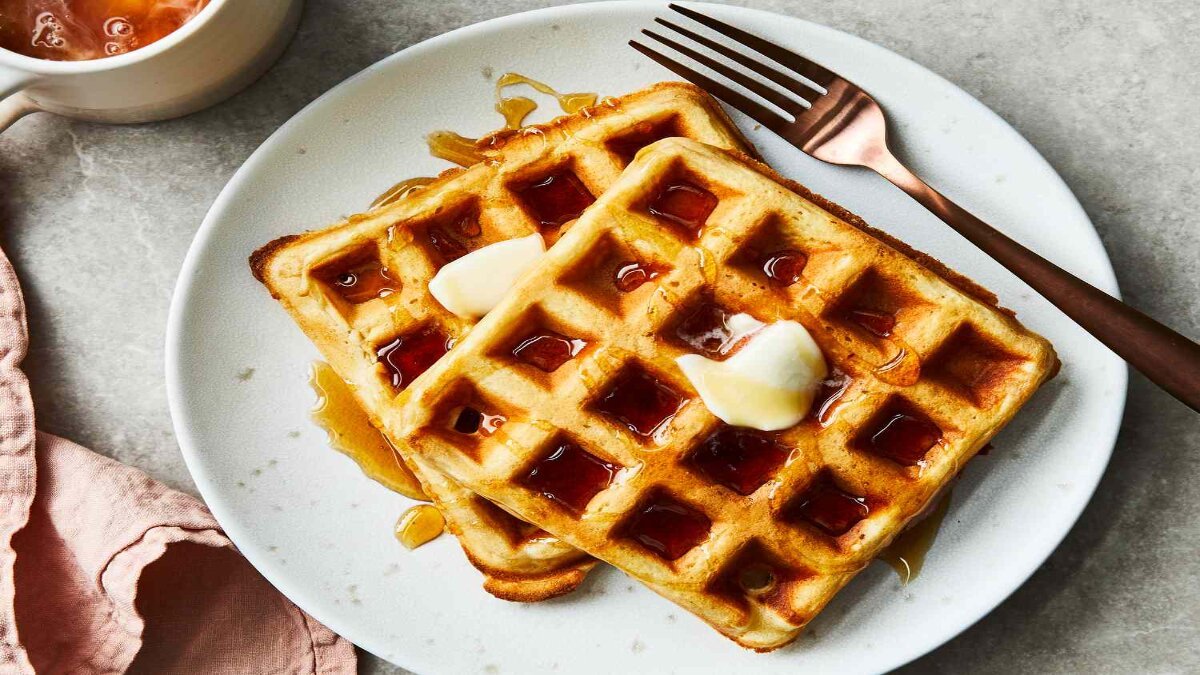Waffles, those delectable grid-patterned treats, are an all-time favorite for many, with their crispy edges and fluffy centers, often topped with an array of delicious accompaniments. While they’re undeniably mouthwatering, a common question arises: are waffles healthy? The answer, as with many foods, lies within the ingredients, preparation methods, and serving choices.
Waffles typically consist of a batter comprising flour, eggs, milk, butter or oil, baking powder, sugar, and salt. The nutritional profile of waffles depends significantly on the quality and type of these ingredients. Whole-grain flour can add fiber and essential nutrients like B vitamins and minerals, while refined flour may lack these nutritional benefits.
The Pros:
- Vitamins and Minerals: Some waffle recipes include ingredients rich in vitamins and minerals. For instance, eggs offer protein, vitamins, and minerals like vitamin B12 and selenium. Additionally, using fortified milk can provide calcium and vitamin D.
- Customizable Toppings: The versatility of waffles allows for healthier topping choices. Fresh fruits, nuts, yogurt, and natural sweeteners like honey or pure maple syrup can boost the nutritional value without compromising taste.
- Potential Modifications: Substituting certain ingredients with healthier alternatives can make waffles more nutritious. For instance, using applesauce or mashed bananas instead of oil or butter reduces saturated fats.
The Cons:
- Refined Ingredients: Waffle recipes often contain refined flour and added sugars, which can spike blood sugar levels and lack essential nutrients present in whole grains.
- Caloric Density: Traditional waffles tend to be calorie-dense due to their high carbohydrate and fat content, which might not be suitable for those watching their calorie intake.
- Toppings and Additions: Indulgent toppings such as whipped cream, chocolate chips, or sugary syrups can escalate the calorie and sugar content, potentially offsetting any health benefits.
The Bottom Line:
Waffles can be part of a balanced diet when consumed in moderation and with mindful ingredient choices. Opting for whole-grain flour, reducing added sugars, and incorporating healthier toppings can enhance their nutritional value.
Consider these tips to make waffles a healthier choice:
- Whole Grain Goodness: Use whole-grain flours like oat or buckwheat to boost fiber and nutrient content.
- Healthier Substitutes: Swap out butter for healthier fats like coconut oil or unsweetened applesauce to cut down on saturated fats.
- Toppings Matter: Choose fresh fruits, nuts, Greek yogurt, or a drizzle of natural honey or pure maple syrup instead of high-sugar options.
The question of whether waffles are healthy doesn’t have a simple yes or no answer. The nutritional value of waffles is greatly influenced by ingredients, preparation, and serving choices. By making conscious selections and mindful adjustments to recipes, waffles can be a part of a balanced diet, offering a delightful treat without compromising health goals.
Ultimately, savoring a homemade waffle occasionally, accompanied by nutritious toppings, can make for a delicious and relatively healthy indulgence. Moderation and smart ingredient choices remain the key to enjoying waffles without guilt while maintaining a well-rounded diet.


